Life
Sign up for our newsletter
We summarize the week's scientific breakthroughs every Thursday.
-
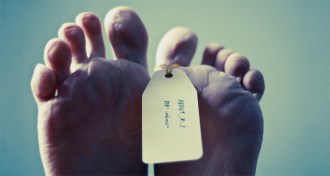 Life
LifeGetting to know the real living dead
A look at the bacteria inside bloated cadavers finds the dead are teeming with life.
-
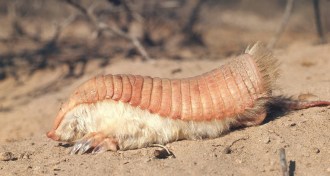 Animals
AnimalsPink armadillos ain’t your Texas critters
It’s a real animal, the smallest armadillo species in the world. At about 100 grams, it would fit in your hands.
By Susan Milius -
 Neuroscience
NeuroscienceMonkeys control two arms in virtual reality
A new brain-computer interface has enabled movement of two virtual limbs at the same time.
-
 Microbes
MicrobesBacteria starved in space grow better
Given limited resources microbes in microgravity make more new cells than their counterparts on Earth.
-
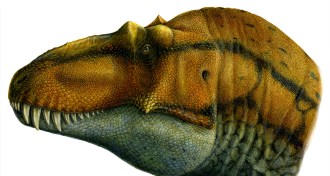 Paleontology
PaleontologyOldest known T. Rex relative found in Utah
Researchers say the animal — named the gore king of the southwest — was an early member of the tyrannosaur family.
-
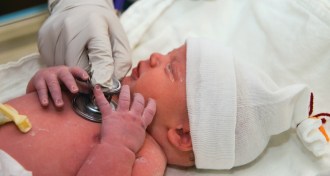 Life
LifeNewborns’ weak immunity may allow helpful bacteria to gain a foothold
Though infant immune systems raise risk of infection, they also allow good microbes into the body, study in mice shows.
By Nathan Seppa -
 Neuroscience
NeuroscienceAutism may be detectable in baby’s first months of life
Infants later diagnosed with an autism spectrum disorder lose tendency to gaze at others’ eyes during first half-year, researchers find.
-
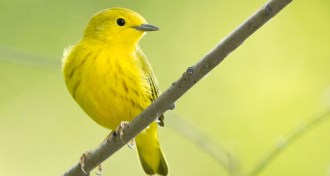 Animals
AnimalsBirds avoid the sounds of roads
The sound of cars driving down a road is enough to deter many bird species from an area.
-
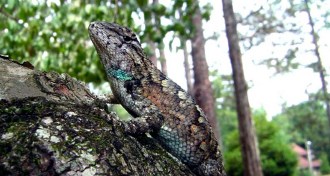 Animals
Animals‘Bearded ladies’ are less sexy to male lizards
Females with masculine neck marks are passed over as mates.
-
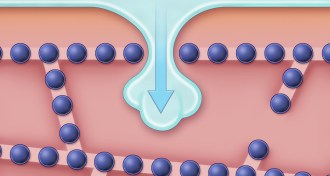 Life
LifeIce crystals form along cells’ seamlike structures
A detailed view of how ice forms among cells could lead to better tissue preservation.
-
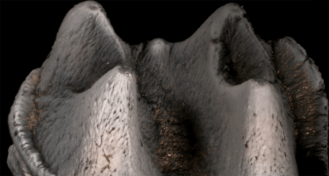 Paleontology
PaleontologyGiant platypus tooth found
A fossil molar found in Australia reveals a previously unknown extinct species of the mammal.
-
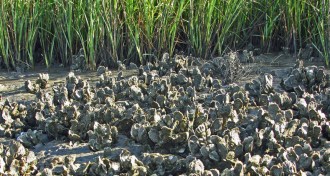 Animals
AnimalsThe reefs are alive with the sound of oysters
How does an oyster figure out where to settle down in life? It listens for where the party’s at. A new study shows that oyster larvae can detect sound in the water.